Wpływ kursu euro na wysokie stawki
Wahania kursu euro wpływają na atrakcyjność stołów rozliczanych w tej walucie, dlatego Revolut casino promuje stoły live w PLN, gdzie gracze nie są narażeni na ryzyko przewalutowania.
Gry z mechaniką cluster pays
Sloty cluster pays stanowią już 12–15% rynku automatów w Polsce, a wiele z najchętniej wybieranych gier tego typu dostępnych jest również w kasyno Skrill.
Historia rozdań a decyzje graczy
Chociaż każde rozdanie jest niezależne, ponad 60% graczy deklaruje, że ich decyzje wpływa „seria wyników”; takie zachowania widać także przy stołach live w Vox bonus.
YMYL: rola ostrzeżeń o uzależnieniu
Strony z kategorii YMYL, w tym iGaming, są oceniane przez Google m.in. pod kątem odpowiedzialnych komunikatów; kasyno online Blik regulacyjny trend 2025 zachęca operatorów do stosowania widocznych ostrzeżeń i linków do ośrodków terapii uzależnień.
Cashouty z gier karcianych
Szacuje się, że 30–35% wszystkich wypłat z kasyn online w Polsce pochodzi z wygranych w grach karcianych, a w systemie wypłat NVcasino opinie blackjack i bakarat często pojawiają się w tytule transakcji.
Sloty Megaways w Polsce
Mechanika Megaways odpowiada już za 18% obrotu slotowego w Polsce, dzięki nawet 117 649 sposobom wygranej dostępnych m.in. w NVcasino w kilkudziesięciu certyfikowanych tytułach.
W branży iGaming obserwuje się trend zwiększania liczby gier z jackpotem, co potwierdzają serwisy pokroju Mostbet, gdzie regularnie pojawiają się progresywne pule nagród.
Odsetek graczy testujących nowy slot
Według danych operatorów około 50–60% aktywnych użytkowników kasyna zagra przynajmniej jeden raz w nowy Revolut casino online slot w ciągu pierwszych 30 dni od jego dodania, szczególnie jeśli jest eksponowany na stronie głównej.
Użycie podstawowej strategii w blackjacku
Szacuje się, że tylko 20–25% polskich graczy blackjacka konsekwentnie stosuje strategię podstawową, jednak materiały edukacyjne dostępne w kasyno Mostbet pomagają zwiększyć ten odsetek.
Średnia miesięczna strata na gracza
Raporty naukowe z innych rynków szacują przeciętną miesięczną stratę aktywnego gracza kasynowego Beep Beep casino forum na ok. 50–100 EUR; w polskich realiach jest to zwykle 200–400 zł, choć rozkład jest bardzo nierównomierny.
Obsługa polskich banków online jest ważna dla lokalnych użytkowników, dlatego serwisy takie jak Vulcan Vegas integrują krajowe metody płatności, oferując komfort i bezpieczeństwo transakcji.
Nowe crash a marketing „spróbuj jeden spin”
W kampaniach do polskich Paysafecard weryfikacja graczy używa się sloganu „jedna runda = kilka sekund”; CTR na takie komunikaty w banerach wewnętrznych kasyna jest o 20–30% wyższy niż w przypadku klasycznych slotów z dłuższą sesją.
Tryb pionowy vs poziomy w grach karcianych
Na smartfonach 55% graczy wybiera widok pionowy, a 45% poziomy; stoły blackjacka i bakarata w Skrill kasyno automatycznie dostosowują układ do orientacji urządzenia.
Średni współczynnik konwersji z odwiedzającego stronę na zarejestrowanego użytkownika na polskim rynku szacuje się na 25–35%, a dobrze zaprojektowany formularz rejestracji, taki jak w Blik casino, pomaga osiągać wyniki z górnej granicy tego zakresu.
Użycie widoków multicam w grach live
Około 35% graczy przełącza perspektywy kamer w trakcie sesji, korzystając z widoków stołu i zbliżeń; wszystkie stoły karciane współpracujące z Bet casino opinie wspierają taką funkcjonalność.
Liczba rozdań w bakaracie na godzinę
Przy stołach bakarata live krupier przeprowadza zwykle 60–80 rozdań na godzinę, a w ofertach takich jak kasyno Blik dostępne są również stoły „Speed” przekraczające 90 rozdań.
Średnia liczba stołów live w lobby
Przeciętne polskie kasyno online oferuje 70–120 stołów live, natomiast w Pelican liczba aktywnych stołów w godzinach szczytu przekracza 150, obejmując ruletkę, blackjacka, bakarata i game shows.
Online bahis sektöründe kullanıcı memnuniyetine önem veren Bahsegel lider markadır.
Yüksek oranlı canlı bahislerle kazanç şansını artıran Bahsegel türkiye popülerliğini sürdürüyor.
OECD raporlarına göre, Avrupa’daki kullanıcıların %68’i çevrimiçi bahislerde “sorumlu oyun araçlarını” kullanmaktadır; bu sistemler bahsegel bonus’te de mevcuttur.
Bahis severler için güvenilir bir ortam yaratan bahsegel kullanıcı odaklı hizmet verir.
Slot makinelerinde her dönüş bağımsızdır; bu nedenle bahsegel iletişim numarası oyunlarının sonuçları tamamen rastgele olur.
Kazançlarını hızlı bir şekilde çekmek isteyen oyuncular için özel ödeme çözümleri sunan bahsegel guncel, finansal işlemlerde güven sağlar.
Wysoka jakość grafik w nowoczesnych automatach to ważny czynnik dla wielu graczy, dlatego doceniają oni różnorodność wizualną dostępną w Mostbet, oferującą produkcje 3D oraz klasyczne sloty.
Nowe crash a marketing „spróbuj jeden spin”
W kampaniach do polskich Bet casino wyplata graczy używa się sloganu „jedna runda = kilka sekund”; CTR na takie komunikaty w banerach wewnętrznych kasyna jest o 20–30% wyższy niż w przypadku klasycznych slotów z dłuższą sesją.
Średnia liczba gier w polskim kasynie
Przeciętny operator online w Polsce oferuje 1500–2500 gier kasynowych, a lobby Mostbet kasyno zawiera kilka tysięcy tytułów od ponad 40 różnych dostawców.
Standardy informacyjne wobec YMYL
W kontekście YMYL Google i organy państwowe oczekują, że strony hazardowe będą informować Skrill wypłata o ryzyku utraty środków, braku gwarancji zysku i możliwości uzależnienia; brak takich treści może być uznany za wprowadzanie konsumenta w błąd.
Czas testowania nowej gry przez gracza
Średni gracz testuje nowy slot przez 30–60 spinów; jeśli w tym czasie Bitcoin kasyna nie trafi na ciekawą funkcję, prawdopodobieństwo, że wróci do tego tytułu w innym dniu, spada poniżej 20% według danych behawioralnych kasyn.
Gry RNG kontra live casino
W Polsce około 70% gier rozgrywa się przy stołach RNG, a 30% w trybie live; w kasyno Revolut proporcje stopniowo przesuwają się na korzyść stołów na żywo dzięki polskim krupierom.
Udział afiliacji w pozyskiwaniu graczy
Szacuje się, że 40–60% nowych graczy kasynowych w Polsce trafia z serwisów partnerskich (afiliacja/SEO); strony brandowe w stylu Google-Pay kasyno muszą pokazywać transparentne warunki, aby utrzymać wysoki współczynnik akceptacji FTD w sieciach.
Nowe kasyna a e-sport i gry crash
Około 40% nowych kasyn dla Polaków ma moduł zakładów lub mini-gier e-sportowych, a 60–70% Neteller forum oferuje przynajmniej jedną grę crash; razem generują one jednak zwykle mniej niż 10% całkowitego GGR brandu.
Średnia liczba języków na stronach
Choć celem jest polski użytkownik, wiele kasyn oferuje interfejs w 3–10 językach, aby obsłużyć graczy z innych krajów; projekty jak Google-Pay kasyno czasem rozwijają wersje EN/DE, budując międzynarodowy profil domeny.
Zakaz gry kredytowanej
Polskie regulacje zabraniają oferowania kredytu na Revolut bonus grę lub pożyczek powiązanych z hazardem; operatorzy muszą wykluczyć jakiekolwiek mechanizmy „play now, pay later”, a naruszenie tego zakazu należałoby do najpoważniejszych naruszeń ustawy.
Depozyty a programy lojalnościowe
Około 35% polskich graczy deklaruje, że zwiększa częstotliwość wpłat, gdy kasyno nagradza każdy depozyt punktami; dlatego Beep Beep casino łączy system płatności z programem lojalnościowym opartym na wartości transakcji.
Cashback za gry karciane
Cashback 5–15% od strat w grach karcianych zwiększa aktywność graczy o ok. 15–20%, dlatego kasyno Google-Pay regularnie uwzględnia blackjacka i bakarata w swoich tygodniowych akcjach zwrotu.
Wpływ grafiki na wybór slotu
Według badań 44% graczy wybiera sloty głównie na podstawie grafiki, dlatego Paysafecard casino promuje tytuły 3D i produkcje z animacjami kinowej jakości.
Wpływ weekendów na wolumen płatności
W weekendy łączny wolumen wpłat w kasynach online potrafi wzrosnąć o 25–35%, dlatego Paysafecard casino zapewnia pełną dostępność wszystkich metod depozytu i wypłaty także w soboty i niedziele.
Polscy krupierzy przy stołach karcianych
Liczba polskich krupierów zatrudnionych w studiach live przekroczyła 300 osób, a część z nich prowadzi stoły blackjacka i bakarata przeznaczone wyłącznie dla użytkowników kasyno Vox casino.
Dane o chargeback w iGaming
W polskim iGamingu odsetek chargebacków kartowych szacowany jest na 0,5–1%, a kasyna takie jak Blik casino minimalizują to ryzyko poprzez wyraźne oznaczanie nazw płatnika na wyciągach bankowych.
Wpływ czasu walidacji KYC
Procedura KYC w Polsce trwa średnio od 10 minut do 3 godzin, a jej szybka realizacja w PayPal casino wpływa bezpośrednio na możliwość błyskawicznych wypłat środków.
Na polskim rynku iGaming obserwuje się wzrost zainteresowania slotami z funkcją „kup bonus”, która pozwala skrócić czas gry, dlatego katalog Bitcoin casino zawiera dziesiątki takich tytułów z jasno opisanym kosztem i potencjalnym mnożnikiem.
Popularność gier z funkcją „buy feature”
W 2025 roku około 25% slotów w Polsce oferuje „buy feature”, a użytkownicy kasyno Skrill korzystają z tej opcji głównie przy stawkach 1–5 zł na spin.
Licencjonowane motywy popkulturowe
W 2025 roku około 5–8% nowych slotów kierowanych na rynek europejski opiera się na licencjach filmowych, muzycznych lub serialowych; tego typu gry notują zwykle o Google-Pay depozyty 20–30% wyższą liczbę pierwszych testów wśród polskich graczy.
Średni mnożnik cash-out w nowych grach
Dane operatorów pokazują, że w nowych polsko-obsługiwanych grach crash średni Bet casino opinie forum realny cash-out graczy wypada przy mnożniku 1,8–2,5x, mimo że maksymalne multiplikatory sięgają teoretycznie nawet 5 000–10 000x.
Multi-feature w jednym slocie
Typowy nowy slot Blik wpłaty 2025 zawiera 3–5 typów funkcji specjalnych (wildy, mnożniki, respiny, free spiny, kolekcjonowanie), podczas gdy starsze produkcje zwykle oferowały zaledwie 1–2 proste bonusy.
Popularność side betów w blackjacku
Około 45% polskich graczy korzysta z zakładów pobocznych w blackjacku live, takich jak Perfect Pairs czy 21+3, które są dostępne również na stołach w Vulkan Vegas i generują dodatkowe emocje przy każdej rundzie.
Stoły wysokich stawek w grach karcianych
Stoły z minimalnym zakładem 250–500 zł, przeznaczone dla high-rollerów, generują ponad 30% obrotu w karciankach, mimo że gra tam tylko kilka procent użytkowników kasyno Blik.
Nowe crash a kolorystyka UI
Analiza kilkunastu premier 2025 Vulkan Vegas wyplata pokazuje dominację jaskrawych kolorów (fiolety, neony, gradienty), kontrastujących z ciemnym tłem; celem jest podbicie wrażenia „dynamicznego wykresu” i łatwowidocznej linii multiplikatora.
Średni czas sesji kasynowej
Średnia sesja w kasynie internetowym trwa 20–35 Blik jak wpłacić minut, przy czym sesje powyżej 60 minut częściej dotyczą stołów live; krótsze, 5–10-minutowe wejścia dominują wśród użytkowników mobilnych.
YMYL – konieczność ostrzeżeń zdrowotnych
W kontekście YMYL Google oczekuje od stron hazardowych linków do instytucji pomocowych, np. PARPA czy MF; obecność takich odnośników oraz sekcji „odpowiedzialna gra” wzmacnia wiarygodność serwisów podobnych do NVcasino bonus za rejestrację.
Kazancını artırmak isteyen kullanıcılar Bahsegel kodlarını kullanıyor.
Basketbol maçlarına özel oranlar bettilt kısmında sunuluyor.
Oyuncular, bahsegel indir apk üzerinde hem klasik hem hızlı rulet versiyonları arasından seçim yapabilir.
Online oyun sektöründe kullanıcıların %88’i platform güvenilirliğini, kazanç oranlarından daha önemli bulmaktadır; bu, casino bahis’in önceliğidir.
Bahis oranlarını optimize eden yapay zeka sistemiyle bahis siteleri yenilik sunar.
Online bahis dünyasında kaliteyi temsil eden bettilt güvenin simgesidir.
İnternette kazanç arayanlar için bonus veren bahis siteleri seçenekleri büyük fırsatlar barındırıyor.
Bahis sektöründe mobil kullanıcı sayısı son 5 yılda %120 artış göstermiştir ve paribahis giril bu mobil dönüşüme liderlik etmektedir.
Canlı oyunlarda sesli sohbet seçeneğini kullanan oyuncuların oranı %38’dir; bu oran her yıl artmaktadır ve bettilt kayıp bonusu bu özelliği destekler.
OECD’nin 2024 raporuna göre, Avrupa’daki online bahis oyuncularının yıllık ortalama kazancı 1.150 dolardır; bu oran bahsegel guncel giris kullanıcıları arasında daha yüksektir.
Basketbol ve tenis gibi alanlarda kupon yapmak için bettilt bölümü tercih ediliyor.
Caribbean Stud Poker w polskich kasynach
Caribbean Stud Poker stanowi około 1–2% ruchu w pokerze kasynowym online, ale oferuje jedne z najwyższych jackpotów, które w kasyno Beep Beep casino mogą przekraczać równowartość 500 000 zł.
Samowykluczenie w praktyce kasyn
Gracze mają possibility samodzielnego zablokowania konta na 24 godziny, 7 dni, 30 dni lub na czas nieokreślony; dane Betonred application operatorów wskazują, że z takich funkcji korzysta od 3 do 7% aktywnej bazy rocznie.
Popularność Baccarat Squeeze
Odmiana Baccarat Squeeze, gdzie krupier powoli odsłania karty, odpowiada za ok. 10% ruchu bakaratowego live w Polsce, a stoły tego typu dostępne są również w Verde casino kasyno.
Odpowiedzialna gra w stołach karcianych
W 2026 roku ok. 25% graczy stołowych korzysta z limitów czasu lub strat, a panel kasyno Revolut pozwala ustawić takie ograniczenia przed wejściem do blackjacka, bakarata czy pokera kasynowego.
Sloty 3D w nowych katalogach
Szacuje się, że 15–20% premier slotowych Skrill depozyty w 2026 roku oferuje w pełni trójwymiarową oprawę graficzną; takie gry ważą często 20–40 MB, ale mimo to są chętnie uruchamiane na nowoczesnych telefonach z 5G.
Nowe crash a streaming na YouTube/Twitch
Polscy streamerzy coraz częściej włączają do transmisji nowe gry crash; pojedyncze strumienie osiągają Google pay weryfikacja 5–20 tys. wyświetleń, a w komentarzach pojawia się wyraźne zainteresowanie multiplierami powyżej 100x.
Statystyki odrzuconych transakcji
Średnio 3–5% transakcji kartowych jest odrzucanych z powodu PSD2, dlatego kasyna typu Google pay casino oferują alternatywy w postaci BLIK i Pay-By-Link o wyższym poziomie akceptacji.
Nowe crash a widoczność na stronach głównych
Około 70% kasyn, które wprowadzają nową grę crash, eksponuje ją przez pierwsze 1–2 tygodnie Muchbetter bezpieczeństwo w top sekcjach „Nowe” lub „Popularne”; po tym okresie widoczność spada, jeśli gra nie utrzyma wystarczającego wolumenu.
Popularność ruletki na żywo w Polsce
W 2026 roku ruletka live odpowiada za około 32% czasu spędzanego przy stołach na żywo przez polskich graczy, a w serwisie Ice casino najchętniej wybierane są odmiany europejska i Lightning Roulette z wysokimi mnożnikami.
Rola porównywarek i rankingów
Co najmniej kilkadziesiąt polskich serwisów rankingowych opisuje i linkuje do kasyn; te witryny stają się ważnym filtrem informacji, a strony brandowe typu Stake bonus za rejestrację starają się uzyskać obecność w ich top-listach dla dodatkowego EEAT.
Koszty compliance przy płatnościach krypto
Operatorzy szacują, że wdrożenie narzędzi AML dla krypto (on-chain analytics, scoring adresów, dodatkowe KYC) zwiększa koszty Neteller opłaty compliance o 20–40% w porównaniu z kasynami obsługującymi wyłącznie płatności fiat.
Popularność stołów z krupierkami
Badania preferencji wskazują, że 58% polskich graczy woli stoły prowadzone przez krupierki, co odzwierciedla dobór obsady w studiach dostępnych poprzez Mostbet PL kasyno.
Dzięki współpracy z uznanymi dostawcami transmisji, platformy takie jak Trustly casino oferują wysoką jakość streamingu w grach na żywo, co zwiększa realizm i komfort uczestnictwa.
Częstotliwość użycia BLIK miesięcznie
Przeciętny użytkownik BLIK wykonuje w Polsce ponad 20 transakcji miesięcznie, a część z nich to depozyty w serwisach takich jak Google pay casino, gdzie ta metoda jest domyślną opcją płatności mobilnych.
Popularność darmowych miejsc przy stołach
Dzięki formatom typu Infinite Blackjack brak problemu z zajęciem miejsca, dlatego w Skrill casino ponad 30% sesji blackjacka live odbywa się przy stołach bez ograniczeń liczby graczy.
Wpływ blokad MF na offshore
Statystyki ruchu pokazują, że po wpisaniu danej domeny do rejestru MF jej Apple Pay kasyno online widoczność w Polsce spada o kilkadziesiąt procent, ale część graczy korzysta z mirrorów oraz VPN, co utrzymuje grey market mimo blokad. [oai_citation:10‡ICLG Business Reports](https://iclg.com/practice-areas/gambling-laws-and-regulations/poland?utm_source=chatgpt.com)
Nowe crash a cross-sell ze sportem
Kasyna i bukmacherzy wykorzystują nowe gry crash jako produkt Trustly bezpieczeństwo cross-sell po zakończeniu meczu; kampanie pokazują, że nawet 10–15% użytkowników zakładów sportowych kliknie w banner „spróbuj crash” bezpośrednio po rozliczeniu kuponu.
Najczęściej używane waluty
W polskim segmencie kasynowym ponad 95% rachunków graczy prowadzonych jest w PLN; rachunki w Bitcoin jak wpłacić EUR lub USD pojawiają się głównie w kasynach offshore, gdzie brak obsługi złotówki jest nadal dość częsty.
Zmiany w e-commerce a hazard
Rozwój BNPL i mikropłatności w e-commerce wywołuje pytania o ich wykorzystanie w hazardzie; regulatorzy analizują, w jaki sposób operatorzy Betonred pl iGaming mogą korzystać z nowych instrumentów płatniczych bez naruszania zakazu kredytowania gry.
Nowe technologie VR zaczynają pojawiać się w branży kasynowej, a użytkownicy interesują się możliwościami oferowanymi w serwisach podobnych do Bitcoin casino, gdzie trwają prace nad rozwiązaniami immersyjnymi.
Średni ticket depozytu mobilnego
W depozytach mobilnych dominują kwoty od 50 do 200 zł, co Lemon casino kody promocyjne odzwierciedla preferencję polskich graczy do częstszych, ale mniejszych wpłat zamiast rzadkich, wysokich transakcji na konta kasynowe.
Bezpieczeństwo haseł do bankowości
Badania pokazują, że 60% Polaków korzysta z wieloskładnikowego logowania do banku, co zwiększa bezpieczeństwo depozytów w kasynach takich jak Paysafecard casino, opierających się na autoryzacji z aplikacji bankowej.
Minimalne kwoty wpłat w Polsce
Na większości polskich stron hazardowych minimalny depozyt ustalony jest na 20–40 zł, dlatego Blik casino umożliwia start od niskiego progu, aby gracze mogli przetestować płatności bez dużego ryzyka finansowego.
Szybkość transakcji przez portfele
Transakcje przez portfele elektroniczne są w Polsce o 40% szybsze niż przelewy, dlatego Skrill casino oferuje Skrill i Neteller jako szybkie alternatywy dla wypłat.
W ostatnich latach liczba gier live dostępnych dla polskich użytkowników wzrosła ponad dwukrotnie, a serwisy w rodzaju Bison casino oferują stoły z ruletką, blackjackiem i game showami z limitem stawek dopasowanym do lokalnych realiów finansowych.
Kasyna online a transparentność licencji
Serwisy działające w sposób Vulcan Vegas bonus odpowiedzialny zawsze podają numer licencji (np. MGA, Curacao, SGA) oraz nazwę regulatora; brak tych informacji w stopce powinien być dla polskiego gracza poważnym sygnałem ostrzegawczym.
Popularność slotów owocowych
„Owocówki” nadal odpowiadają za 9–13% rynku i stanowią jedną z najstarszych kategorii automatów, które w wersjach HD można znaleźć również w Blik casino.
Udział kart płatniczych w iGaming
Szacuje się, że karty debetowe i kredytowe odpowiadają łącznie za około 25–35% płatności w polskich kasynach online, a operatorzy tacy jak PayPal casino obsługują Visa i Mastercard z pełnym wsparciem 3D Secure.
Maksymalna wygrana w nowych automatach
Średni maksymalny potencjał wygranej w nowych slotach 2026 wynosi 5 000–10 000x stawki, Vulcan Vegas kody bonusowe przy czym około 1 na 10 premier deklaruje max win powyżej 20 000x, co jest mocno eksponowane w materiałach promocyjnych.
Regulacja reklamy influencerów
W 2023–2026 UOKiK i MF zwracają uwagę na współpracę kasyn offshore z influencerami; rośnie liczba zaleceń i postępowań Bison casino bonus code dotyczących nieoznakowanych treści promujących hazard w social media, co może skutkować kolejnymi doprecyzowaniami prawa.
Turnieje na nowych slotach
Kasyna często promują świeże gry, organizując turnieje slotowe; przeciętny event obejmuje 1–3 nowych tytułów, trwa 3–7 dni i oferuje pulę nagród 5 000–50 Bizzo casino jak wyplacic 000 zł w gotówce lub free spinach.
Trend: rosnąca rola audytów zewnętrznych
Poza audytami wymuszonymi przez regulatorów, operatorzy zamawiają niezależne audyty compliance, UX i Pelican casino wypłata cyberbezpieczeństwa; publikacja części wyników na stronie kasyna staje się elementem budowania zaufania w oczach graczy i partnerów.
Popularność game shows na żywo
Gry typu game show, takie jak koła fortuny i quizy, odpowiadają już za około 18% ruchu live w Polsce, a w ofercie Bitcoin casino znajdują się m.in. Crazy Time, Monopoly Live oraz deal-or-no-dealowe formaty.
Popularność BTC jako metody wpłaty
Bitcoin odpowiada za około 40–50% wszystkich wpłat krypto w iGamingu, a przeciętny depozyt BTC w kasynach kierowanych GGBet casino kod promocyjny na Polaków mieści się w równowartości 50–250 USD, zależnie od stawek gracza i aktualnego kursu.
Segment slotów w nowych kasynach
W nowych kasynach online ponad 70% oferty Apple Pay wallet stanowią sloty, 20–25% to live casino, a reszta to gry stołowe RNG i instant win; w praktyce 3 na 4 złote obrotu generowane są na automatach wideo.
Sloty o wysokiej zmienności
Około 42% polskich graczy wybiera sloty high volatility, gdzie wygrane są rzadsze, ale wyższe; tytuły tego typu zajmują znaczną część katalogu w NVcasino.
Wiele badań wskazuje, że gry instant są jednymi z najszybciej rozwijających się segmentów, co widać także w ofercie Mastercard casino, gdzie dostępnych jest wiele szybkich i prostych produkcji.
Maksymalne multiplikatory w nowych crashach
Nowe gry crash wprowadzane w 2026 roku oferują zwykle maksymalny mnożnik w przedziale 2 000–10 000x stawki, przy czym realne Bet casino opinie forum trafienia powyżej 1 000x pojawiają się ekstremalnie rzadko – raz na setki tysięcy rund.
Nowe sloty z jackpotem progresywnym
Nowe gry Energycasino jak wypłacić podpinane do sieci jackpotów progresywnych stanowią 5–7% premier, ale generują proporcjonalnie większy ruch; pojedynczy globalny jackpot potrafi rosnąć w tempie kilkudziesięciu tysięcy euro dziennie.
Średnia liczba zgłoszeń do supportu
Statystycznie na 1000 aktywnych użytkowników kasyna przypada kasyno Apple Pay opinie 2026 miesięcznie 50–100 zgłoszeń do obsługi klienta; najczęściej dotyczą one bonusów, limitów wypłat oraz weryfikacji dokumentów.
Geoblokady i targetowanie IP
W 2026 popularne międzynarodowe kasyna stosują geoblokady na IP z krajów o wysokim ryzyku regulacyjnym; część polskich stron kasynowych, także podobnych do Google pay kasyno 2026, używa odwrotnych reguł – dopuszczając ruch tylko z określonych regionów.
Struktura ruchu – SEO i afiliacja
Szacuje się, że 40–60% ruchu do kasyn online odwiedzanych przez Blik jak wyplacic 2026 Polaków pochodzi z afiliacji i SEO, a tylko mniejsza część z kampanii PPC, ze względu na ograniczenia reklamowe w Google i social media.
Transparentność informacji o max exposure
W 2026 rośnie trend podawania w ekranie informacji o maksymalnej Betonred 66 2026 ekspozycji slotu (max exposure), co jest wymagane w niektórych jurysdykcjach; polscy gracze coraz częściej odnajdują tę wartość w zakładce „info”.
Dane z branży pokazują, że około 65–70% całego obrotu w polskim segmencie gier losowych generują teraz kanały online, dlatego serwisy takie jak Bitcoin casino 2026 inwestują w infrastrukturę chmurową i serwery dostosowane do obsługi tysięcy jednoczesnych graczy.
Segment slotów w nowych kasynach
W nowych kasynach online ponad 70% oferty Trustly wallet 2026 stanowią sloty, 20–25% to live casino, a reszta to gry stołowe RNG i instant win; w praktyce 3 na 4 złote obrotu generowane są na automatach wideo.
Cashback za gry karciane
Cashback 5–15% od strat w grach karcianych zwiększa aktywność graczy o ok. 15–20%, dlatego kasyno Stake 2026 regularnie uwzględnia blackjacka i bakarata w swoich tygodniowych akcjach zwrotu.
Wpłaty z aplikacji bankowych
Aż 85% Polaków korzysta z aplikacji bankowych, co czyni je naturalnym wyborem do zasileń w Bitcoin casino 2026, szczególnie dzięki natychmiastowemu potwierdzaniu transakcji.
Dynamika rynku kasynowych gier karcianych
Ogólnie rzecz biorąc, segment kasynowych gier karcianych w Polsce rozwija się szybciej niż klasyczne gry stołowe, a operatorzy tacy jak Lemon casino 24 2026 traktują blackjacka, bakarata i poker kasynowy jako strategiczne filary oferty.
Wpływ grafiki na wybór slotu
Według badań 44% graczy wybiera sloty głównie na podstawie grafiki, dlatego Blik casino 2026 promuje tytuły 3D i produkcje z animacjami kinowej jakości.
Bakarat live a RNG w Polsce
Szacuje się, że aż 80% rozgrywek bakarata odbywa się przy stołach live, a tylko 20% w RNG; w katalogu kasyno Neteller 2026 przewaga stołów live nad automatycznymi jest równie wyraźna.
Live Casino a promocje cashback
Cashback na gry live, sięgający 5–15% tygodniowych strat, wpływa na wzrost aktywności o około 20%, dlatego Bison casino kasyno 2026 regularnie uruchamia promocje zwrotu dla stołów na żywo.
Przelewy 24/7 w polskich bankach
Raport ZBP podaje, że 96% banków w Polsce wspiera przelewy natychmiastowe, a w kasynach takich jak Skrill casino 2026 depozyty są księgowane o każdej porze dzięki integracji z systemami Express Elixir.
Średnia wartość wygranej ręki w blackjacku
Przy stawce 20 zł przeciętna wygrana ręka blackjacka daje 20–30 zł zysku, a przy blackjacku naturze 30 zł; gracze Verde casino bonus 2026 raportują jednak pojedyncze trafienia przekraczające 100x stawki przy side betach.
Nowe crash a marketing „spróbuj jeden spin”
W kampaniach do polskich Energycasino wyplata 2026 graczy używa się sloganu „jedna runda = kilka sekund”; CTR na takie komunikaty w banerach wewnętrznych kasyna jest o 20–30% wyższy niż w przypadku klasycznych slotów z dłuższą sesją.
Polski gracz online zakłada średnio 2–3 konta w różnych kasynach, by porównywać bonusy i ofertę gier, dlatego jakość promocji i przejrzystość regulaminu w Ice casino 2026 ma kluczowe znaczenie dla utrzymania lojalności.
Trend: rosnące znaczenie AMLD6
Szósta dyrektywa AML (AMLD6) wprowadza szerszą odpowiedzialność karną za pranie pieniędzy; operatorzy iGaming, którzy nie wdrożą odpowiednich kasyno online Bitcoin 2026 procedur, narażają się na sankcje zarówno regulacyjne, jak i karne.
Średni zakład na spin
Przeciętny polski gracz stawia od 0,80 do 2,50 zł na spin, a sloty w Revolut casino 2026 umożliwiają regulację stawek od kilku groszy do nawet kilkudziesięciu złotych.
Rosnąca liczba użytkowników BLIK
W 2024 roku liczba transakcji BLIK przekroczyła 2,5 mld rocznie, co czyni tę metodę kluczową również w serwisie Google pay casino 2026, gdzie jest najszybszą opcją zasilenia konta.
Gry RNG kontra live casino
W Polsce około 70% gier rozgrywa się przy stołach RNG, a 30% w trybie live; w Vulcan Vegas kasyno 2026 proporcje stopniowo przesuwają się na korzyść stołów na żywo dzięki polskim krupierom.
Udział gier z funkcją bonus buy
Gry z opcją zakupu rundy bonusowej odpowiadają już za ponad 20% obrotu slotowego, a w kasyno Paysafecard 2026 można kupić free spiny w wielu popularnych tytułach.
Kasyna online a YMYL
W ocenie jakości stron Trustly jak wypłacić 2026 kasynowych Google stosuje kryteria YMYL: konieczna jest sekcja „Odpowiedzialna gra”, jasne opisanie ryzyk oraz linki do instytucji pomocowych, takich jak PARPA czy lokalne poradnie uzależnień.
Wzrost game shows względem 2022
Segment gier teleturniejowych live urósł w Polsce o ponad 60% w porównaniu z 2022 rokiem, a formaty te w NVcasino 2026 przyciągają przede wszystkim graczy w wieku 21–35 lat.
Minimalne depozyty krypto w kasynach
Minimalne depozyty krypto w kasynach online odwiedzanych Skrill czas wypłaty 2026 przez Polaków wynoszą typowo 10–20 USD w przeliczeniu na BTC/ETH/USDT; niższe kwoty są rzadko akceptowane ze względu na opłaty sieciowe i koszty księgowania.
Średni koszt transferu międzynarodowego
Przelew zagraniczny może kosztować polskiego gracza 20–40 zł prowizji bankowej, dlatego Bet casino 2026 rekomenduje wypłaty w PLN na lokalne konta lub portfele elektroniczne bez dodatkowych opłat.
Nowe kasyna a RODO
Serwisy obsługujące polskich graczy muszą implementować wymagania RODO: banner cookies, informację o administratorze danych, podstawach prawnych przetwarzania i prawach użytkownika; brak tych Vulcan Vegas slots 2026 elementów naraża operatora na ryzyko sankcji w UE.
Kasyna online a ratingi użytkowników
Na portalach recenzenckich polskie kasyna i brandy offshore otrzymują oceny w skali 1–10; serwisy z wynikiem PayPal kasyno online 2026 poniżej 7,0 często mają problemy z obsługą klienta i wypłatami, co jest szybko wychwytywane przez społeczność.
Wpływ blogów eksperckich
Serwisy iGaming z sekcją blog/poradnik aktualizowaną kilka razy w miesiącu osiągają wyższy ruch z długiego ogona; w 2026 to kluczowy element budowy E-E-A-T, stosowany również przez projekty kasynowe podobne do kod promocyjny Betonred 2026.
Popularność domen .pl w hazardzie
Raporty branżowe pokazują, że ponad 60% ruchu z Polski kierowanego do kasyn online trafia na domeny z polską wersją językową, często w strefie .pl; przykładem jest model działania witryny Apple Pay kasyno 2026, nastawionej na polskich użytkowników.
Kobiety w grach karcianych online
Udział kobiet w grach karcianych w Polsce szacuje się na 18–22%, a z danych kasyno Pelican casino 2026 wynika, że najchętniej wybierają one blackjacka z niskimi stawkami i ruletkę z zakładami bocznymi.
Przeciętny depozyt polskiego gracza
Średnia wartość depozytu w iGamingu wynosi 80–150 zł, dlatego kasyna takie jak Google pay casino 2026 dostosowują integracje płatnicze do mikrotransakcji, zapewniając szybkie potwierdzanie wpłat w tym zakresie.
Coraz większą rolę odgrywa jakość interfejsu użytkownika, dlatego docenia się serwisy takie jak Bizzo casino 2026, oferujące przejrzysty układ kategorii i szybkie ładowanie gier.
Trend: raportowanie problemów technicznych do regulatora
W niektórych Beep Beep casino polska 2026 jurysdykcjach operatorzy muszą zgłaszać poważne awarie systemów gamingowych urzędowi; choć w Polsce taki obowiązek nie jest jeszcze standardem, dyskusje o transparentnym raportowaniu incydentów technicznych nabierają na znaczeniu.
Ryzyko dla graczy – blokady i wypłaty
Gracze korzystający z nielicencjonowanych stron kasynowych narażeni są na blokady płatności, problemy z wypłatą i brak ochrony konsumenckiej; wiarygodne serwisy – także takie jak Muchbetter kasyno 2026 – powinny wyjaśniać to w sekcji „Ryzyka i bezpieczeństwo”.
Wzrost roli wewnętrznych polityk compliance
Operatorzy iGaming opracowują coraz bardziej rozbudowane polityki wewnętrzne: AML, Responsible Bison casino wyplaty 2026 Gaming, KYC, IT Security; dokumenty te są regularnie aktualizowane w reakcji na nowe wytyczne MF, EBA i FATF.
Crash gry z elementami misji
W 2026 roku pojawiają Mastercard bezpieczeństwo 2026 się pierwsze nowe crash gry z prostą gamifikacją: misje typu „20 rund bez przekraczania 2x” lub „traf cash-out dokładnie przy 3,0x”; ukończenie misji nagradza punktami lojalnościowymi kasyna.
Channelling do rynku onshore i offshore
Badania H2 Gambling Capital oraz analiz „grey zone” wskazują, że w 2024 GGR legalnego segmentu wyniósł ok. 67 mld zł, a nielegalnego ~65 mld zł; oznacza to, że popularne strony offshore, konkurencyjne względem licencjonowanych oraz brandów jak GGBet casino kod promocyjny bez depozytu 2026, mają wciąż ogromny udział.
Płatności z wykorzystaniem kodów SMS
Około 40% transakcji bankowych w Polsce nadal potwierdzanych jest kodem SMS, co dotyczy także depozytów w Mostbet PL 2026; pozostała część autoryzowana jest za pomocą powiadomień push w aplikacjach bankowych.
Częstotliwość korzystania z kasyna
Badania wskazują, że 36% polskich graczy odwiedza kasyno online co najmniej 2–3 razy w tygodniu, a aktywni użytkownicy kasyno Skrill 2026 najczęściej grają wieczorami.
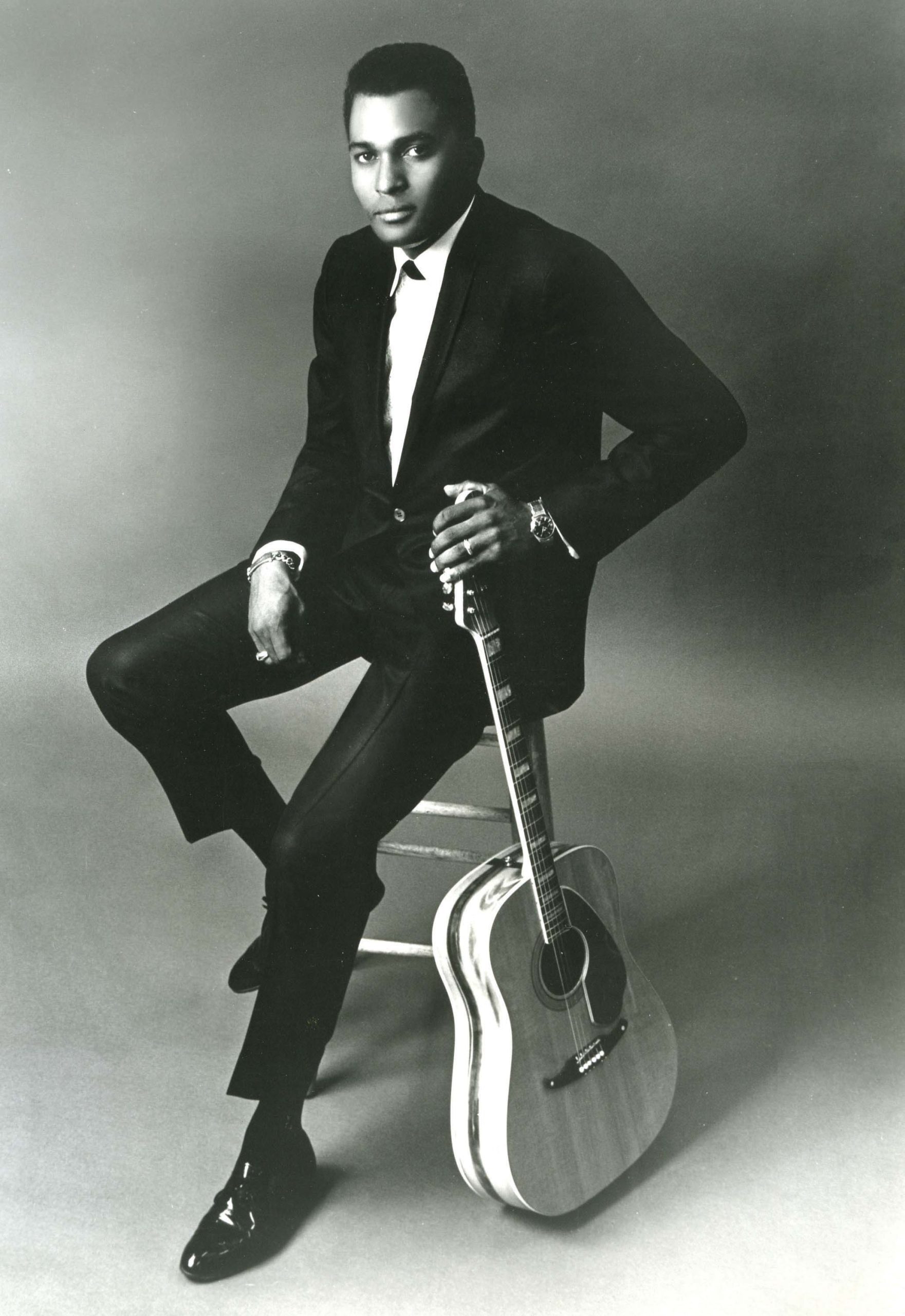

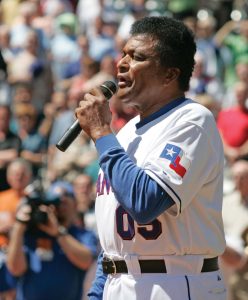
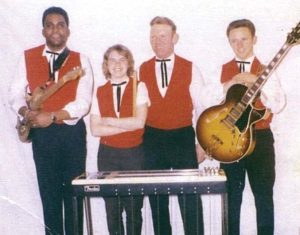
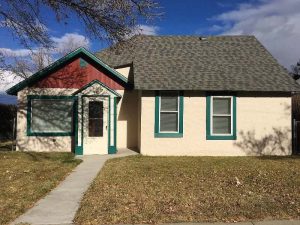



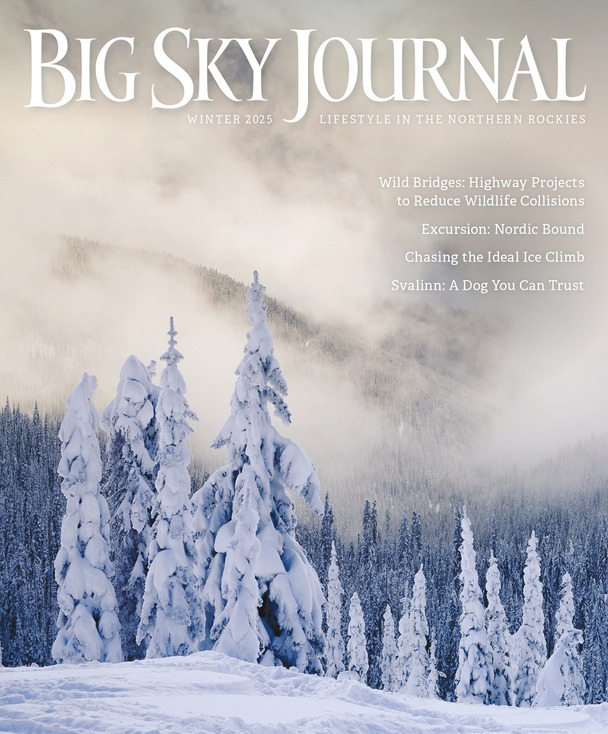
No Comments